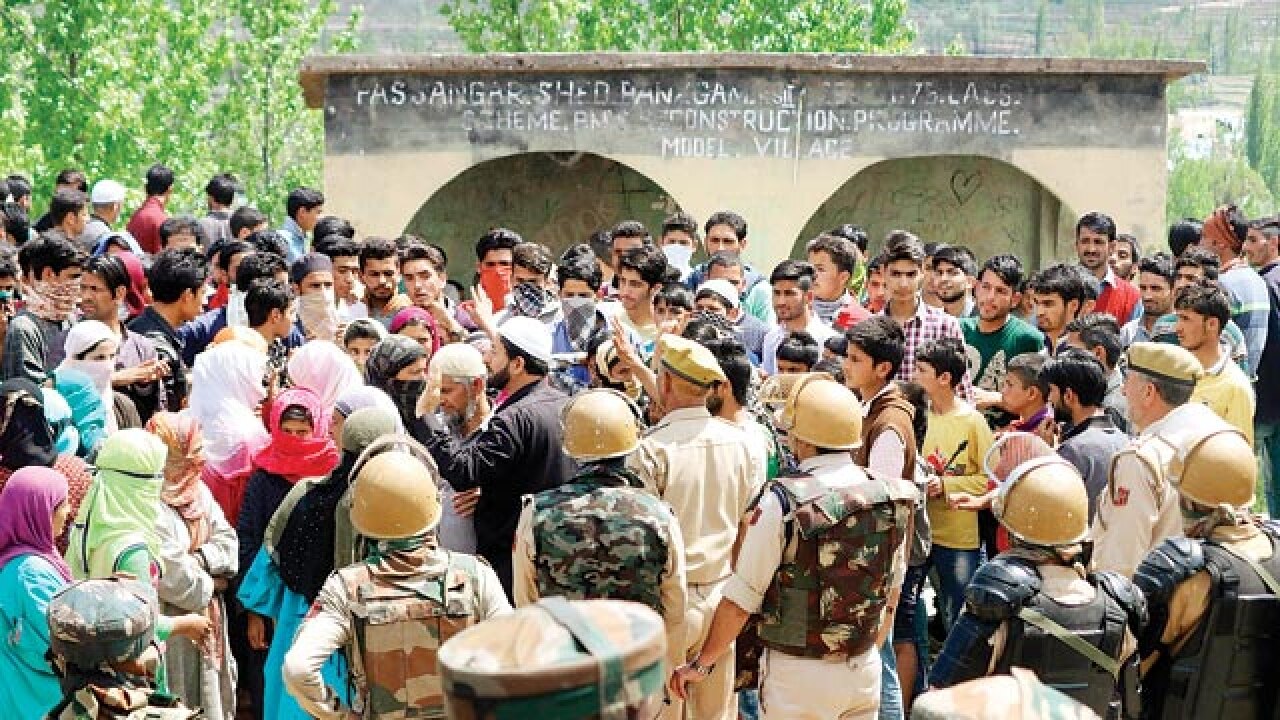
India has to put in place a realistic narrative for the Kashmir imbroglio, which has become more intractable. More than ever before, there is a dire need for “quiet diplomacy and politics”, instead of a military solution. It is very difficult to describe the current situation in Kashmir in a balanced manner. There are so many prejudices that suppress the existing reality for people outside. There is the all-pervasive narrative of “oppression” of the people.
Then there is Pakistan, which has succeeded in reviving the world’s fears vis-à-vis Kashmir. Even the US dropped clear hints that President Donald Trump may speak to India and Pakistan to resolve the fears of a “nuclear flashpoint in the region”. India, for all good reasons, has been rejecting the talk of third-party intervention and has been asserting that it can resolve its issues. But the damage is done. Now the question of who has isolated whom on the world stage can be asked.
Never before was the Kashmir situation as bad as it is today. It would be a grave mistake to read the situation in terms of decline in terrorist violence and drastic reduction in casualties from hundreds in the 1990s to less than 100 annually in recent years. The real issue is that the Kashmiri psyche is ingrained with the idea of resistance — not just with guns and stones, but also with the hate and anger that they harbour against India. Now crowds are rushing to encounter sites to save trapped militants and throw stones at the armed forces.
Pakistan, of course, is delighted by it all. The country helps its ‘deep state’ to work to cause unrest in the Valley and to demonise India through its envoys and hired propaganda machinery within Kashmir and abroad. That is when international attention gets riveted to the trouble in Kashmir. In short, the conflict is widening at an amazing pace in the minds of Kashmiris. Prime Minister Narendra Modi, who brought a choice of terrorism and tourism for the stone-throwers, was looking only through the prism of economic prosperity of the area. That terrorism and tourism do not go together is universally accepted. Modi was right in making the people aware of how terrorism in Kashmir had brought decades of bloodshed to the Valley, ruined the progress of Kashmiris, and made them hostage to deprivation. So much so that the benefits of the advance of the 21st century have been denied to them.
Thus, economics matters to Kashmiris as it does everywhere else in the world. Yet they have demonstrated an undiminished love for the militants and stone-throwers.
India faces four different challenges in transforming the narrative if it really wishes to do something in Kashmir. First, it has to discard the notion that a military approach alone can help regain the lost paradise. Local militancy is a greater threat than the one coming from across the border. It is true, as the Prime Minister said, that if Pakistan is unable to stabilise itself, can it be a choice for the people of J&K? The fact is that the Pakistan-sponsored narrative has more acceptability here. Secondly, we need sophisticated diplomacy to deal with Pakistan. The ‘snub Islamabad’ policy, for all its audaciousness, is not the answer. Mature nations look at long-term victory and not short-term nationalist passion-satisfying diplomacy.
Third, it is more important for India to set its own house in Kashmir in order before embarking on diplomatic victories. The country’s soft power is nearly absent. People are important and it is a good sight to see thousands lining up for jobs at Army recruitment rallies. That, too, needs to be analysed. Why were these people there? Were they there in search of jobs or just for the love of their nation? The narrative should be moulded in such a way that even those who do not find jobs love the nation. Unfortunately, that is not the reality. Fourth, Kashmiris, by and large, are peace-loving people who have been pushed into the cauldron of violence. They are in search of trustworthy peace—not by the overwhelming and intrusive presence of the forces, but as an evolution that finds its way through “quiet diplomacy and politics.”
This is the phrase used by former Home Minister P Chidambaram, but it is more relevant today than ever before. Delhi should also stop funding and encouraging political parties and leaders who seek escape routes in being pro-Pakistan and manufacture false narratives about Kashmir. They are more deadly than separatists. That distinction needs to be made right away, along with the help of a realistic strategy that will help cure distorted views of Kashmir.
Send your edits to gennextedit@dnaindia.net